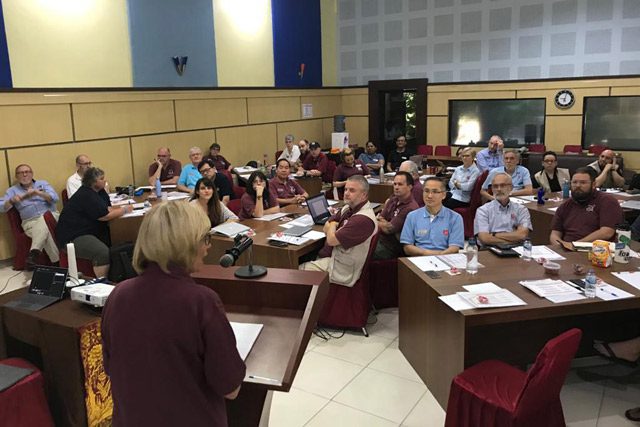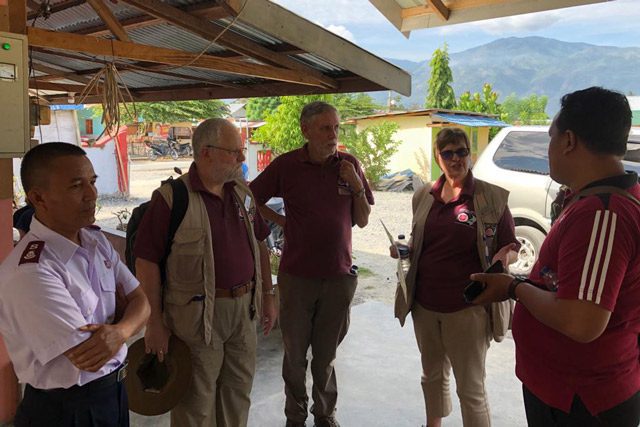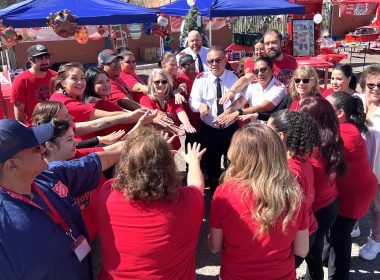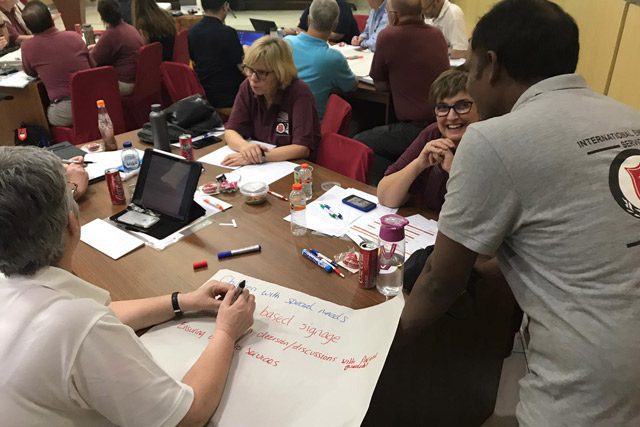More than 30 Salvation Army emergency service personnel from around the world gathered in Palu, Indonesia, for a team leaders’ workshop organized by International Emergency Services Coordinator Major Alison Thompson and Associate Coordinator Damaris Frick.
The workshop had two main focus areas: “Safeguarding and Protection of Beneficiaries” and “Care for the Carers,” but there were also sessions to provide an overview of Salvation Army emergency responses and to show what was happening in the wider humanitarian sector.
International Emergency Services relies on the support of many territories for personnel who are well-trained, experienced and available to deploy. When major disasters occur worldwide, often international emergency teams are deployed to to support impacted territories or mount Salvation Army responses.
As emergency response programs often operate in areas where there is not a strong Salvation Army presence, emergency team leaders are often the public face of the Army. The success of team deployments relies largely, therefore, on the skills of the team leader, so this workshop focused on the the information needed to ensure its delegates returned home with an advanced level of knowledge.

The humanitarian world is changing, with new concepts and procedures regularly being introduced by the United Nations and non-governmental community. This workshop was part of an effort to equip leaders with the right understanding and experience.
In the past five years, International Emergency Services has deployed 62 people from 15 different territories to respond to the Ebola epidemic, a cyclone in Vanuatu, earthquakes in Nepal, the refugee crisis in Europe, cyclones in Mozambique, hurricanes in Haiti and the Bahamas, a Ugandan refugee response and the earthquake and tsunami in Indonesia.
This recent major disaster – and the response to it – was a reason why Palu was chosen as a host location for the workshop, with the Indonesia Territory and its leaders, including Territorial Commander Colonel Yusak Tampai.
Due to the location, delegates were able to complete field visits to communities affected by the earthquake and tsunami that allowed for the sharing of practical experience to accompany the theoretical information of the workshop. The larger group was split into eight small teams, each of which travelled to a location where The Salvation Army has been – or is still – engaged in relief and recovery operations.

The delegates were able to converse with people facing challenges or vulnerabilities as well as corps officers who find themselves in the double role of being affected, yet still supporting their communities.
At the end of the workshop, delegates were united in recognizing the value of their time to share and learn together.
“The field visit and feedback from field visits was inspiring,” a delegate wrote, while others praised “the variety of the group, exchange of experiences and contact with local people” and described the event as “the best conference I have attended in The Salvation Army.”
From a report by International Emergency Services













